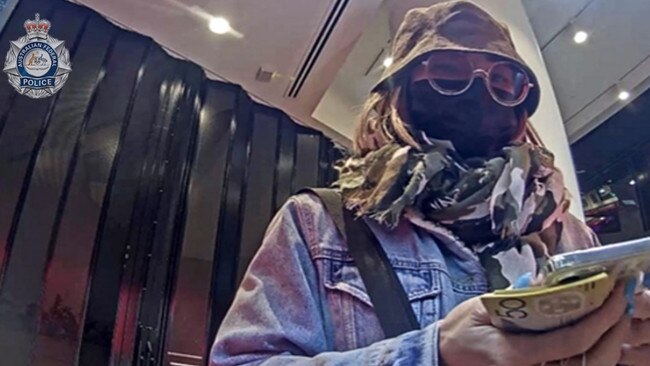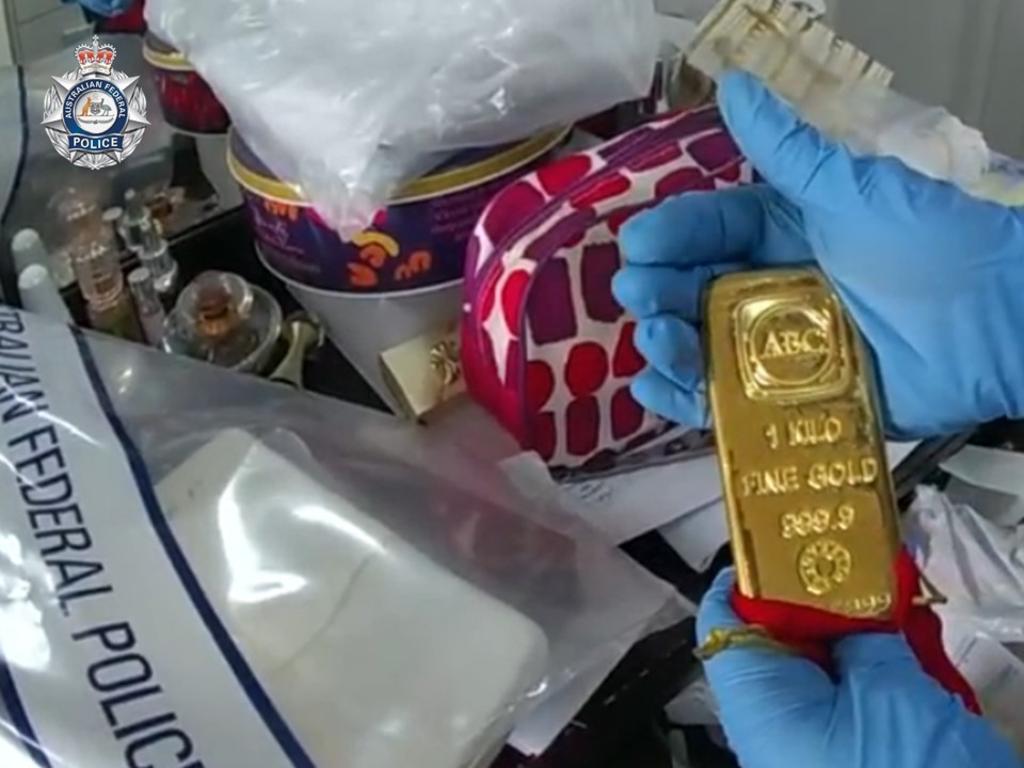Secret Australian Federal Police taskforce Avarus hunts for billions in money laundering plots
More than $250m in cash, cryptocurrency, high-end cars and houses in blue-chip suburbs have been seized as the AFP zeroes in on money laundering.
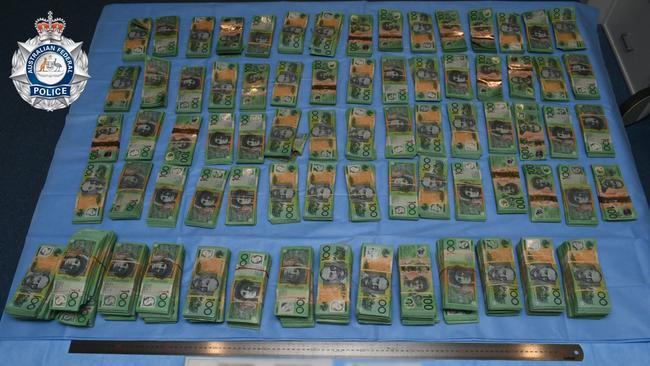
More than $250m in cash, cryptocurrency, high-end cars and houses in blue-chip suburbs have been seized as the Australian Federal Police zeroes in on the rivers of dirty cash being moved by money launderers.
A secret taskforce has been working behind the scenes to take down money-laundering gangs which are moving up to $1m an hour as they try to get dirty money generated by drug-trafficking, weapons and people-smuggling moved offshore or absorbed into the legitimate economy.
Forty-two people have been charged with 66 offences relating to money laundering, and cash and assets worth a quarter of a billion dollars have been frozen or forfeited.
The move is part of a new AFP focus on cutting off criminal gangs’ access to money – the lifeblood of organised crime – to stop it being used to fund lavish lifestyles and financing the next criminal enterprise.
Taskforce Avarus, to be formally revealed on Friday, is targeting money launderers who facilitate drug smugglers and other organised criminals by hiding, moving or legitimising the proceeds of their crimes.
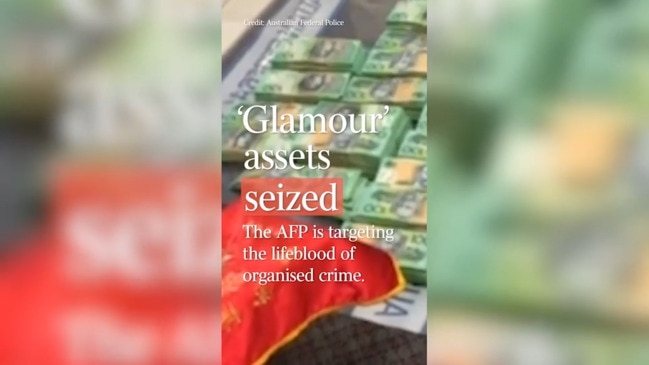
Using an army of money mules, multiple bank accounts, dead drops, safe houses and an international network of shadow banks, as well as ruthlessly exploiting gaming venues and “daigou’’ or surrogate shopper schemes, money launderers are washing billions of dollars in illicit funds in Australia every year.
The multi-agency taskforce, headquartered in Sydney but operating across Australia, comprises AFP investigators, the Australian Transaction Reports and Analysis Centre, the Australian Criminal Intelligence Commission, and the Australian Border Force. It is seeking to formalise private partnerships with banks and financial institutions, which have security-vetted employees and already work alongside Austrac investigating suspicious banking transactions.
The AFP’s Assistant Commissioner Eastern Command, Stephen Dametto, said money laundering undermined national security, the economy and the social security system. He said the syndicates behind it were sophisticated outfits whose key purposes were to launder funds and provide a shadow economy that enabled other crime.
“They exist only to launder money on behalf of organised crime and rely on the expertise of professionals, such as lawyers and accountants, to help them evade law enforcement,’’ Mr Dametto said.
“This dirty money that is laundered through our economy is not only bankrolling lavish lifestyles but also funding future crime, such as more illicit drug importations and weapons trafficking. ‘’

While federal and state police continue to target organised crime with arrests, the taskforce is seeking to hit professional gangsters where it hurts – in the wallet. The AFP’s Criminal Assets Confiscation Team has been targeting organised crime figures for years but Taskforce Avarus, working with the CACT, will focus on money-laundering operations.
Police investigations have revealed one Sydney syndicate was laundering $1m an hour for up to five hours a day.
Another syndicate used students and foreign nationals as money mules, and sent them to multiple automatic teller machines to deposit smaller sums of dirty cash into their accounts without raising suspicions of the banks, by ensuring the deposits fell under the $10,000 reporting threshold.
Some syndicates used safe houses to store millions of dollars in cash, often hidden in compartments built into furniture, under floors and in walls. Others opened bank accounts in the names of law-abiding Australians to move money offshore.
The take-down of an alleged Chinese-Australian money-laundering syndicate in Sydney last month resulted in millions of dollars in assets being restrained, including properties in harbourside suburbs Vaucluse and Bellevue Hill.
“While law-abiding Australians are earning an honest day’s living, paying their taxes or being good community citizens, organised crime gangs are using money gained illegally to increase their wealth,’’ Mr Dametto said.

“They are buying homes, commercial property, investing in our financial systems and living large without the financial pressures felt by ordinary Australians.”
Detective Superintendent Craig Bellis said a method of money laundering known as offsetting meant criminals did not have to risk physically or electronically moving money across Australian borders.
Money launderers who used offsetting had access to large amounts of cash in different international jurisdictions, so could get money transferred between accounts or jurisdictions overseas without risking detection at the Australian border.
An entire shadow banking network existed, outside the legitimate banking and financial institutional sector, to facilitate this type of money laundering.
“There’s actually no value leaving Australia across the international border or coming back in across the international border because it’s offset with money that’s already in those jurisdictions,” Mr Bellis said. “It’s all controlled by the same group.’’
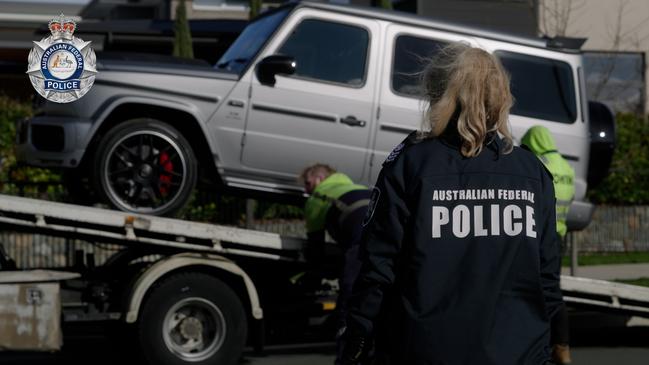
Taskforce Avarus has been operational since July but intensive efforts have been under way for more than a year to bring down money-laundering gangs, since the discovery of vast troves of evidence and intelligence obtained through the AFP/FBI covert sting known as Operation Ironside, using the encrypted app AN0M.
It will build on and expand the relationships that already exist between Austrac, Border Force, the ACIC and the AFP with the banks.
Mr Bellis said banks were already co-operating with police to target money launderers.
“If we’ve got a syndicate, let’s say, (that) is conducting some structuring activity, where they’re running around various ATMs and depositing money in ATMs, we will work directly with the bank to get a live feed on their activity which will help us track where they’re going,’’ he said.
The bank details could help police determine the movements of the money mule, who could then be watched and arrested.
As well, the bank could conduct a data sweep of their accounts to look for links to any other suspected syndicate members.
